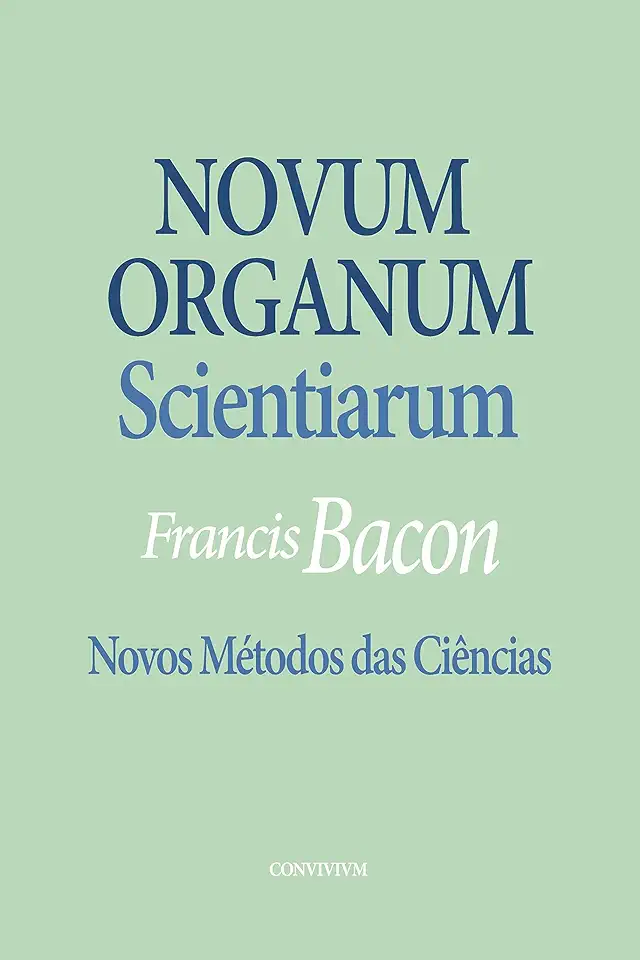
Novum Organum - Francis Bacon
Novum Organum: A New Method of Thinking
In his groundbreaking work, Novum Organum, Francis Bacon presents a revolutionary approach to scientific inquiry and knowledge acquisition. Departing from the traditional reliance on deductive reasoning and syllogistic logic, Bacon advocates for a new method based on empirical observation, experimentation, and inductive reasoning. Through this innovative approach, Bacon challenges the prevailing Aristotelian philosophy and establishes a foundation for modern scientific thought.
Reimagining the Scientific Method
Bacon's Novum Organum introduces a systematic and rigorous method for conducting scientific investigations. He emphasizes the importance of direct observation and experimentation, arguing that true knowledge can only be derived from sensory experience. By carefully observing and experimenting with the natural world, scientists can uncover the underlying laws and principles that govern it.
The Four Idols
Bacon identifies four major obstacles to clear thinking and accurate knowledge, which he terms "idols." These idols, deeply ingrained in human nature and thought patterns, hinder our ability to perceive reality objectively. Bacon categorizes these idols into four groups:
Idols of the Tribe: These are universal human tendencies and biases that distort our perceptions. For instance, our inclination to perceive patterns and connections even when they don't exist.
Idols of the Cave: These are individual biases and prejudices that stem from our unique experiences, upbringing, and cultural backgrounds. They cloud our judgment and prevent us from seeing things as they truly are.
Idols of the Marketplace: These arise from the language we use to communicate. Words often carry preconceived notions and assumptions, leading to misunderstandings and misinterpretations.
Idols of the Theater: These are false notions and beliefs that we blindly accept from authorities, traditions, or prevailing opinions without critical examination.
The Great Instauration
To overcome these idols and achieve true knowledge, Bacon proposes a "Great Instauration," a comprehensive reform of the scientific method. He outlines a step-by-step process for conducting scientific investigations, emphasizing the importance of careful observation, experimentation, and inductive reasoning. By following this method, scientists can gradually build a solid foundation of knowledge based on empirical evidence.
The New Atlantis
Bacon's vision of a scientific utopia is encapsulated in his fictional work, The New Atlantis. This allegorical novella depicts a society where science and technology flourish, leading to a harmonious and prosperous civilization. The New Atlantis serves as a blueprint for a society that values scientific inquiry, collaboration, and the pursuit of knowledge for the betterment of humanity.
A Legacy of Influence
Novum Organum has had a profound impact on the development of modern science and philosophy. Bacon's emphasis on empirical observation and inductive reasoning laid the groundwork for the scientific revolution, inspiring countless scientists and thinkers to challenge conventional wisdom and explore the natural world through experimentation. His work continues to inspire and guide scientific inquiry to this day, shaping our understanding of the universe and our place within it.
Why You Should Read Novum Organum
Novum Organum is a seminal work that revolutionized the way we think about science and knowledge. It is a must-read for anyone interested in the history of science, philosophy, or the pursuit of truth. Bacon's insights into the human mind and the nature of reality are as relevant today as they were when they were first published. By reading Novum Organum, you will gain a deeper understanding of the scientific process and the importance of critical thinking in our quest for knowledge.